On 21 October, Khmelnytskyi National University (KhNU) held a meeting dedicated to Erasmus+ Opportunities, Development, and Cooperation. The event brought together representatives of the university's academic community who are eager to engage with the European educational area.
The meeting commenced with opening remarks from Liudmyla Remishevska, Head of the International Relations Department. She stressed the critical importance of international cooperation for KhNU’s development and highlighted that the Erasmus+ Programme is a key European Union tool in the fields of education, youth, and sport. Liudmyla Remishevska provided a detailed introduction to the KA1 Cooperation Projects in Higher Education, outlining the objectives of the action, its types, and various formats of international mobility.
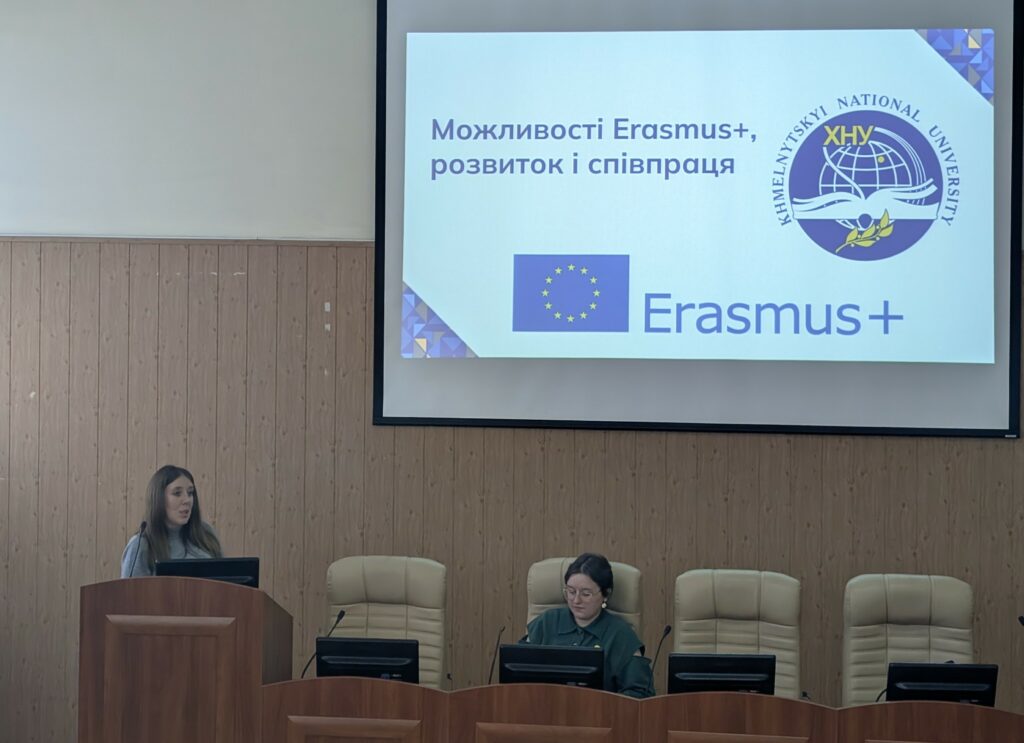
A particularly inspiring moment for the attendees was the screening of video testimonials from KhNU students who had already successfully participated in academic mobility programmes. This visually demonstrated the tangible benefits of participating in KA1. Our academic mobility participants.
The next part of the agenda was a presentation on the Jean Monnet action delivered by Anastasiia Zarzhytska, a leading specialist in the International Relations Department. Jean Monnet is a tool that promotes the dissemination of knowledge about EU integration issues by supporting teaching, learning, and research on the European Union, its history, and its policies. The speaker focused specifically on Jean Monnet Modules as the first step towards Khmelnytskyi National University’s participation in this action.
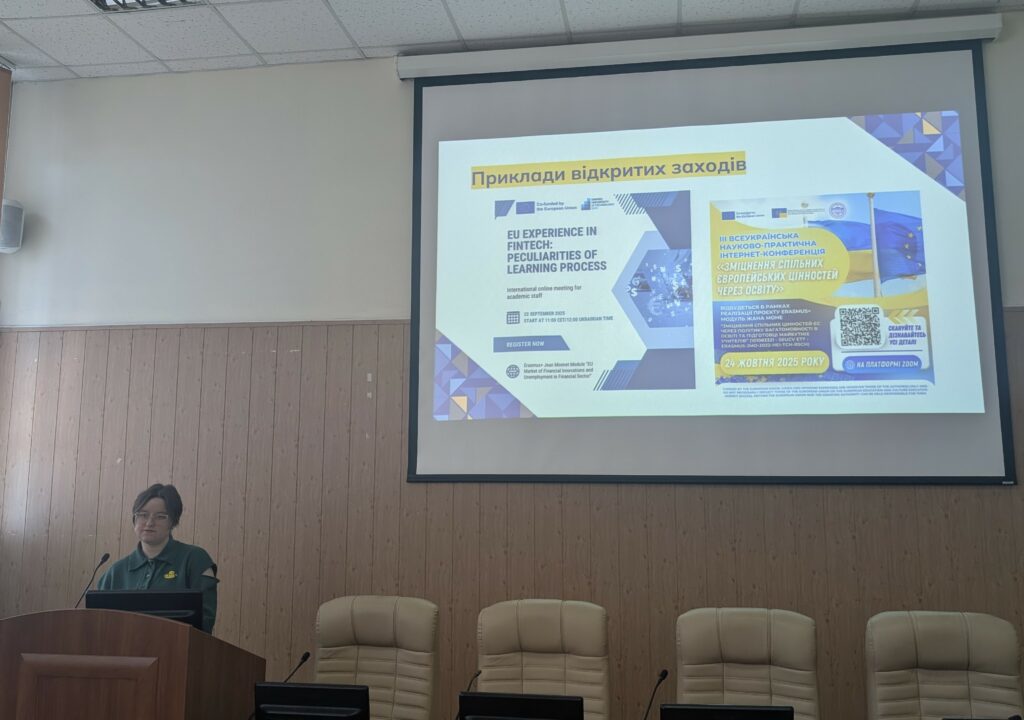
Following this informational segment, the participants engaged in an exciting quiz testing their knowledge of Erasmus+. The winners, who best demonstrated their awareness, received pleasant gifts in the form of merchandise from the National Erasmus+ Office in Ukraine.
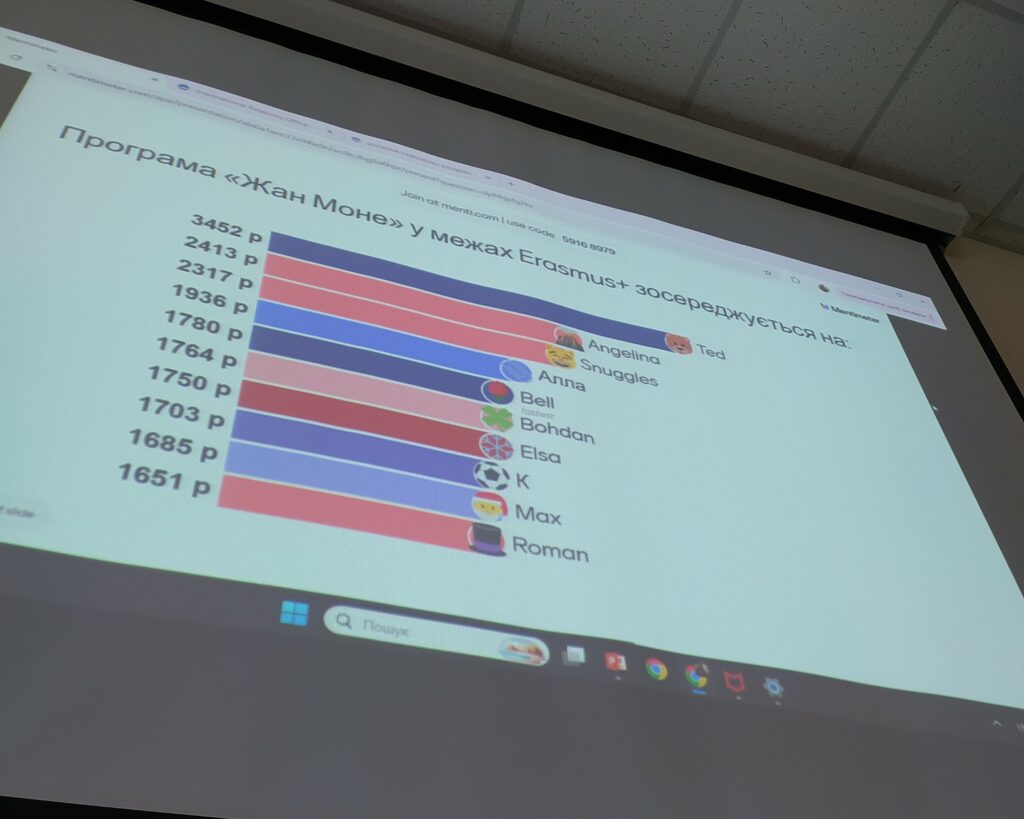

Next, all attendees were introduced to the KA2 action as an opportunity for cooperation between organisations and institutions. Attention was focused on the type of Cooperation Partnership projects (KA220-HED), which have a special focus on supporting Ukraine. Requirements for partnership were outlined, and the participation of organisations from Ukraine was justified.
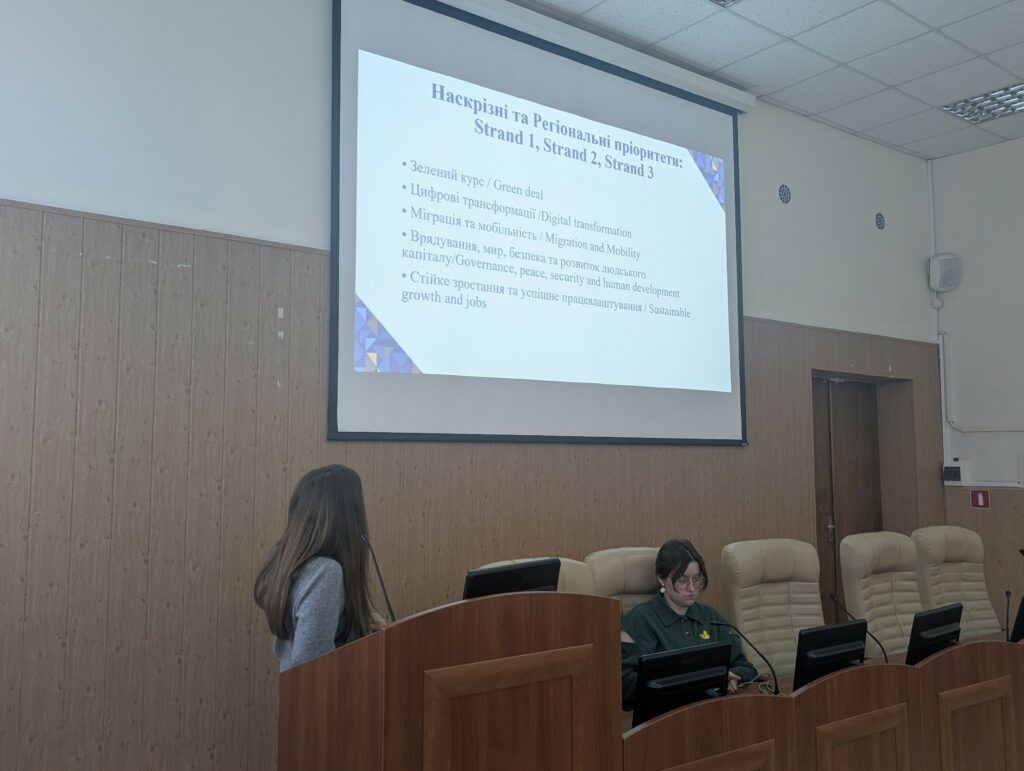
Kateryna Skyba, Vice-Rector for Academic and Research Work, familiarised the participants with the “Regulation on the Implementation of International Cooperation Programme Projects” and the “Procedure for the Implementation of International Cooperation Programme Projects at Khmelnytskyi National University.” She elaborated on the application submission process, shared practical advice on project preparation, and emphasised the importance of adhering to the university’s internal regulations when participating in international programmes.
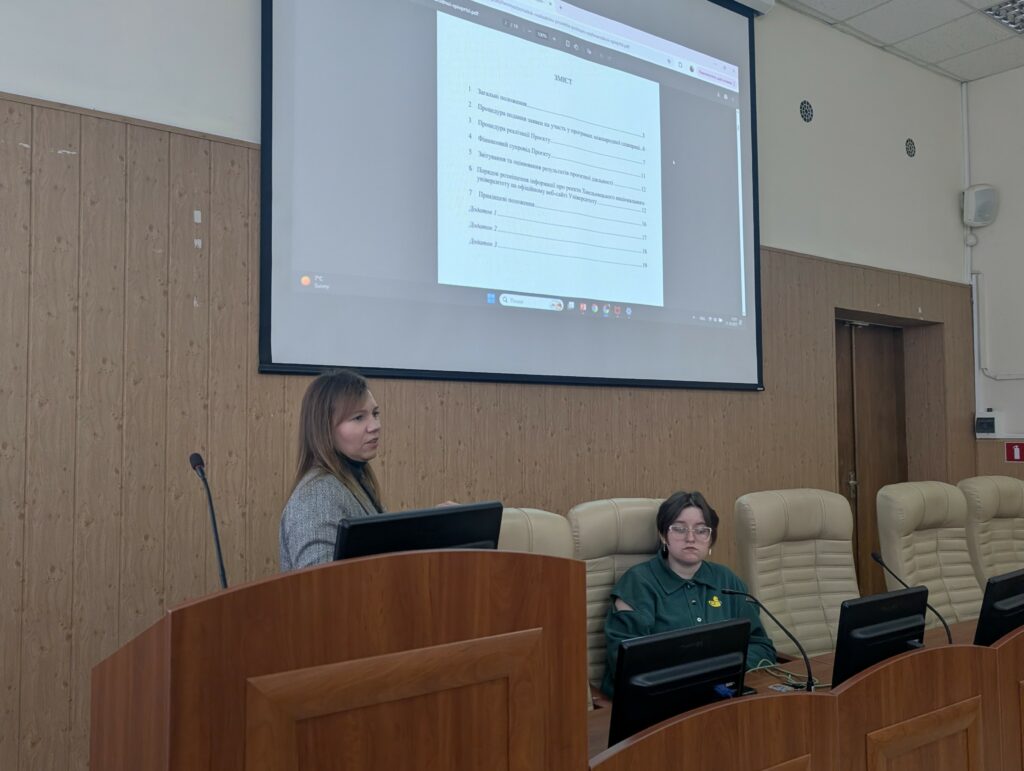
The concluding part of the event was presented by Oleksandra Fishchuk, a specialist from the International Relations Department, who emphasised the importance of a professional online presence in establishing international contacts. She demonstrated the capabilities of the LinkedIn platform for creating a professional image and introduced the Europass tool—a universal CV format that helps effectively present one’s competencies and experience at the European level.
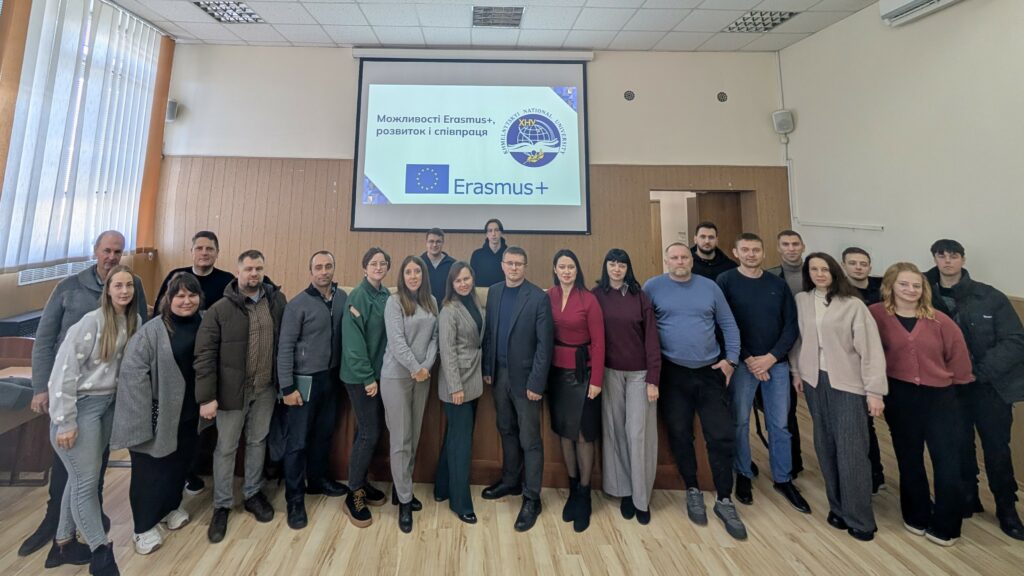
The event served as further confirmation that Khmelnytskyi National University is actively developing international cooperation and supporting the aspirations of students and teaching staff for professional and educational growth. Such initiatives open up new opportunities for exchanging experiences, executing joint projects, and strengthening the university’s position within the European educational landscape. They demonstrate the university community’s readiness to move forward and contribute to the formation of a modern, open, and competitive educational environment.